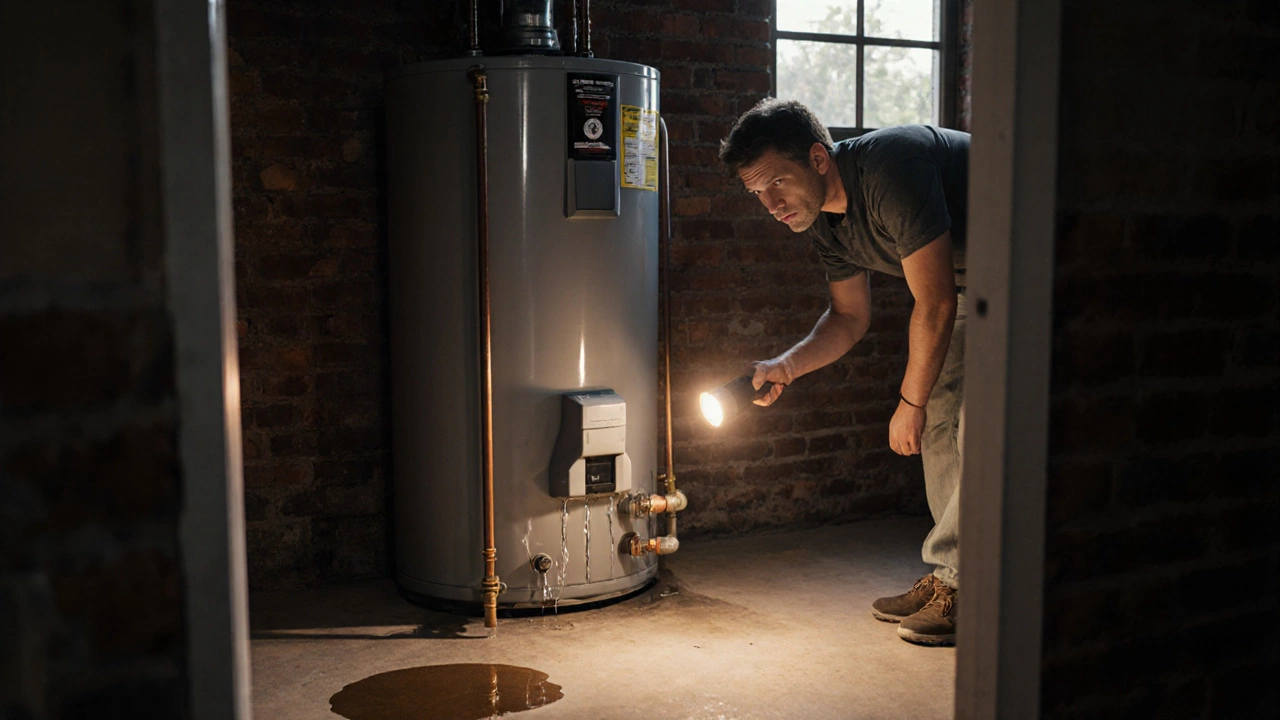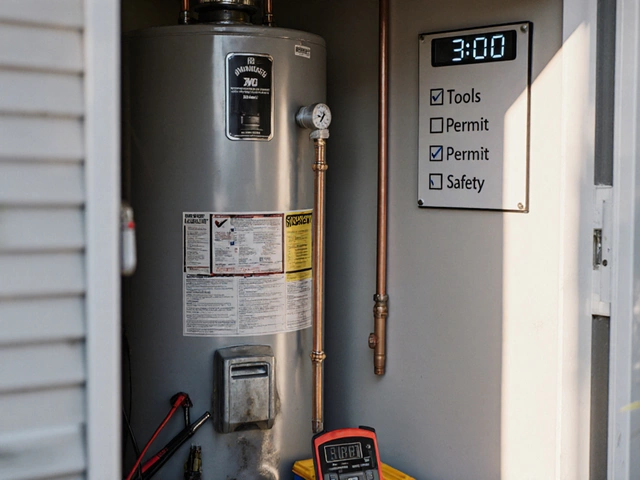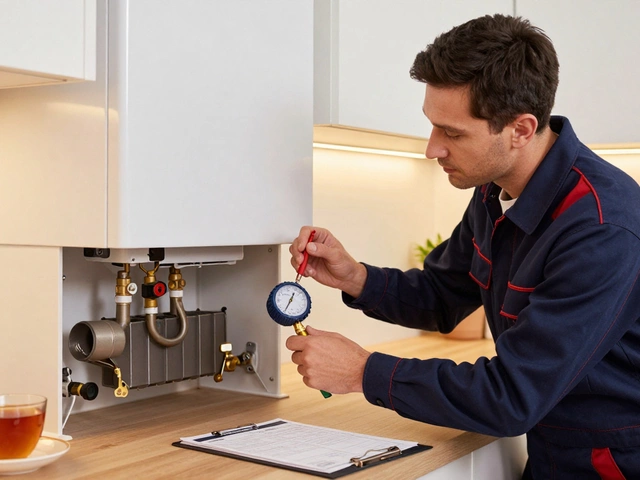Hot Water Heater Repair vs Replacement Calculator
Cost Comparison Tool
Results
When your Hot Water Heater is the appliance that supplies hot water for showers, dishes and heating stops delivering steady heat, the first question is usually: is it worth fixing or should you replace it? In this guide we’ll break down the real costs, common failure points, and the pros and cons of repair versus replacement, so you can decide without guessing.
Understanding How a Hot Water Heater Works
Most homes in Auckland use a Traditional Tank Water Heater. A gas‑or‑electric burner (or heating element) heats a metal tank filled with water. A Thermostat monitors temperature and cycles the burner on and off. Over time, parts like the Anode Rod corrode, or the heating element burns out, causing loss of heat or leaks.
Newer Tankless Water Heater models heat water on demand, eliminating the storage tank but adding complex electronics that can fail. Knowing which type you have is the first step in estimating repair costs.
Typical Failure Points and Repair Costs in 2025
- Heating Element (electric): $80‑$150 for the part, $120‑$200 labor.
- Gas Burner (gas): $90‑$180 part, $150‑$250 labor.
- Thermostat or Control Board: $70‑$130 part, $100‑$180 labor.
- Anode Rod Replacement: $30‑$60 part, $80‑$130 labor.
- Leak Repairs (tank corrosion): $150‑$300 part, $200‑$400 labor; may require tank replacement.
These numbers reflect Auckland rates for licensed plumbers in October 2025. Prices can vary by brand and warranty status.
When Repair Makes Sense
Repair is generally the smarter choice when:
- The heater is less than 8‑10 years old. Modern units are designed for a 10‑15 year lifespan.
- The issue is a single component (e.g., a failed heating element) rather than tank corrosion.
- You have a solid warranty that covers parts and labor.
- Energy‑efficiency upgrades aren’t a priority right now.
For example, swapping a $120 heating element on a 7‑year‑old electric heater usually saves $250‑$350 compared to buying a new unit.
When Replacement Is the Better Bet
Consider a full replacement if:
- The unit is older than 12‑15 years and shows multiple signs of wear.
- Your tank is rusted, bulging, or leaking.
- Energy bills are climbing-newer models can be up to 30 % more efficient.
- You’re remodeling and can integrate a tankless system or a higher‑capacity model.
A brand‑new 50‑gal electric heater in Auckland costs $1,200‑$1,600 installed. If repair estimates exceed $800, replacement becomes financially sensible.
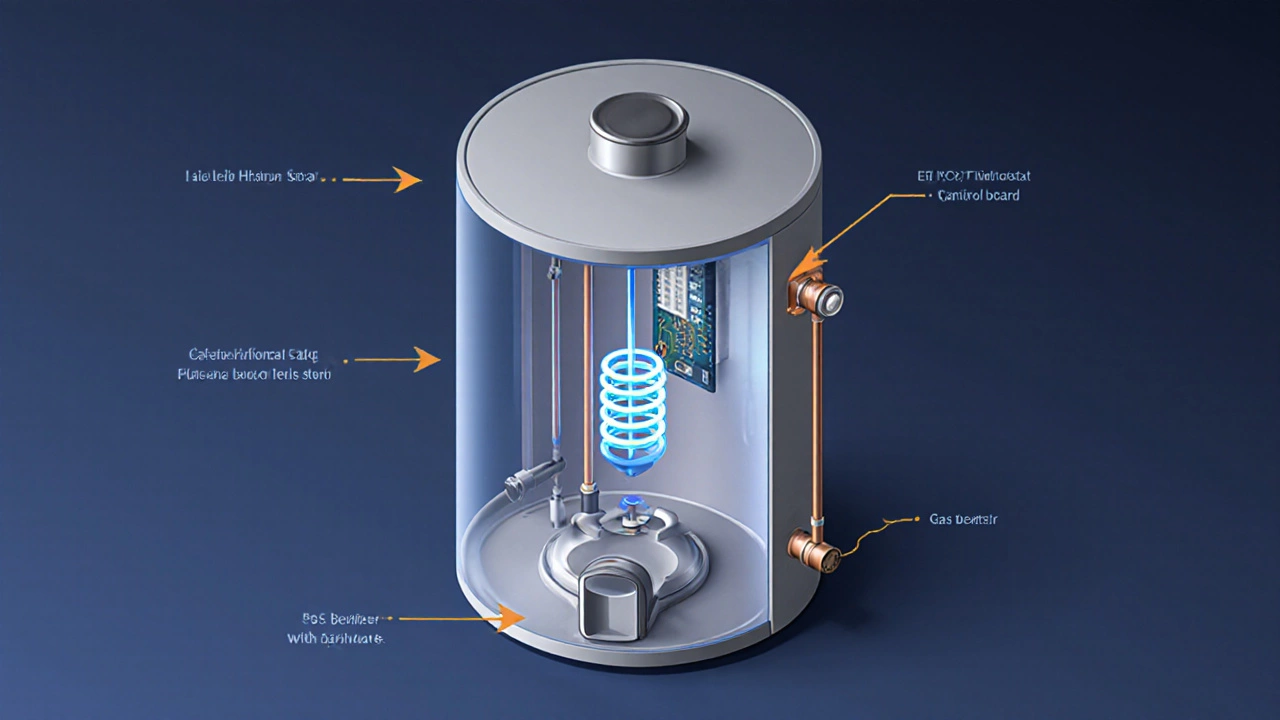
Cost Comparison: Repair vs Replace
| Scenario | Parts | Labor | Total | Typical Lifespan After Service |
|---|---|---|---|---|
| Replace heating element (electric) | $120 | $180 | $300 | ~12 years total |
| Replace gas burner | $150 | $200 | $350 | ~12 years total |
| Full tank replacement (electric) | $900 | $700 | $1,600 | ~15 years |
| Full tank replacement (gas) | $1,200 | $800 | $2,000 | ~15 years |
| Tankless system (electric) | $1,500 | $900 | $2,400 | ~20 years |
Use this table as a quick reference when you get quotes. If the repair total is more than half the price of a new unit, you’re probably better off replacing.
DIY vs Professional Repair
Some basic fixes-like tightening a loose pressure valve or cleaning the dip tube-can be tackled with a screwdriver and a few safety precautions. However, most component swaps involve opening the tank, handling gas lines, or working with electricity. In New Zealand, licensed plumbing work is required for gas‑related repairs, and insurers may void coverage if an unlicensed person performed the job.
If you’re comfortable with basic tools and your heater is electric, a DIY element replacement can shave $50‑$80 off the labor bill. For any gas‑related issues, call a licensed plumber.
Hidden Costs to Watch Out For
- Permit fees: Some local councils require a permit for new gas lines or tank installations. Expect $50‑$150.
- Disposal fees: Old tanks must be taken to a recycling centre. That’s usually $30‑$60.
- Water damage: A leaking tank can damage flooring and walls. Repairing the surrounding area can run $200‑$800.
- Energy savings: Upgrading to a high‑efficiency unit can cut hot‑water energy use by 15‑30 %.
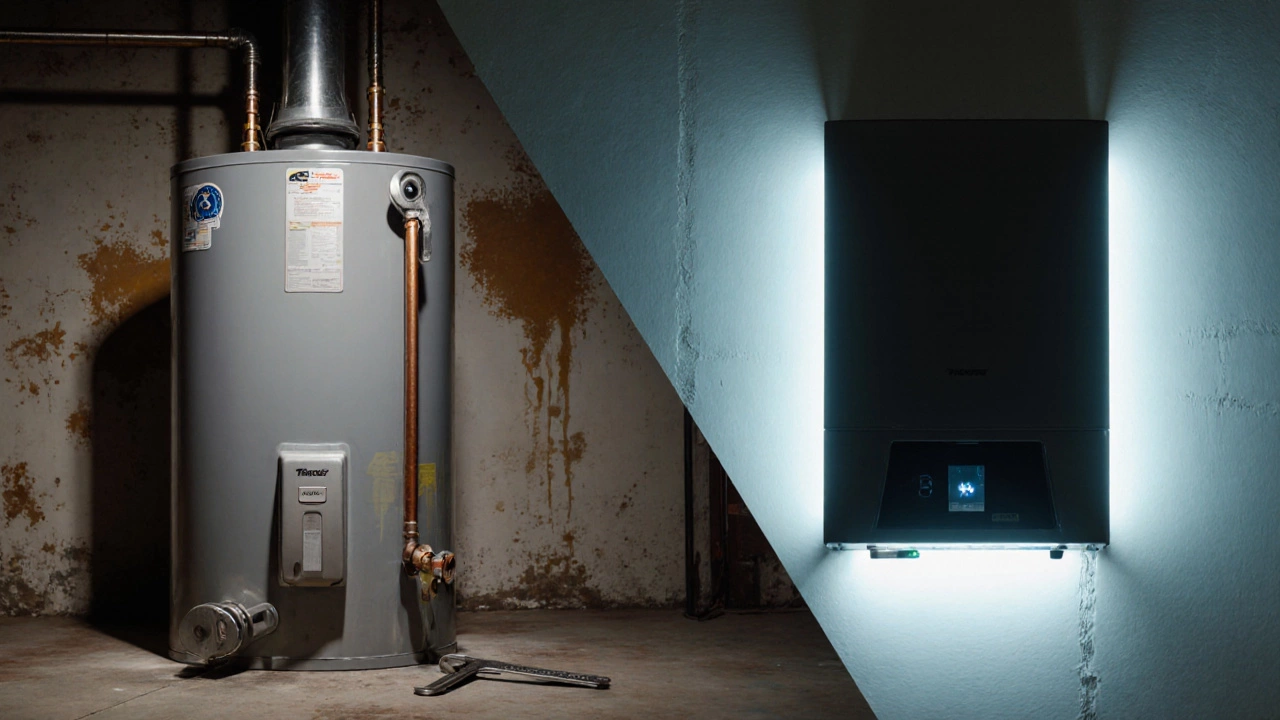
Quick Decision Checklist
- Age of the heater?
- Nature of the fault (single part vs tank damage)?
- Warranty coverage?
- Estimated repair cost vs new unit price?
- Potential energy savings from a newer model?
Answering these questions in a few minutes gives you a clear direction.
Next Steps After You Choose
- Get at least two written quotes from licensed Auckland plumbers.
- Ask each quote to break down parts, labor, and any permit or disposal fees.
- If repairing, confirm the warranty on the new part and schedule the work within a week to avoid further water damage.
- If replacing, compare the energy‑efficiency rating (E‑label) and consider a tankless model if space allows.
- Plan for proper disposal-many hardware stores accept old tanks for a small fee.
Frequently Asked Questions
How long does a typical hot water heater last?
A well‑maintained tank‑type heater usually lasts 10‑15 years. Tankless units can reach 20 years if serviced regularly.
Is it safe to replace a heating element myself?
For electric models, swapping an element is one of the easier DIY jobs-just turn off power at the breaker, drain the tank, and follow the manufacturer’s instructions. Always double‑check for live voltage before touching wires.
What signs indicate a failing anode rod?
A rusty or foul‑smelling water, sludge at the bottom of the tank, or a sudden drop in water temperature often point to a depleted anode rod. Replacing it can extend tank life by several years.
Do I need a permit to install a new gas water heater?
In Auckland, a building consent is required for new gas connections. Your plumber will usually handle the paperwork, but expect a $50‑$150 fee.
Can a water heater be repaired after a leak?
If the leak is limited to a loose valve or a small pipe joint, repair is possible and cost‑effective. A ruptured tank, however, means replacement is the only safe option.
Bottom line: if your heater is still within its expected lifespan and the fix involves a single, affordable component, go ahead and repair. If it’s showing multiple wear signs or the repair quote climbs above half the price of a new unit, replace it and reap the energy‑efficiency benefits.
